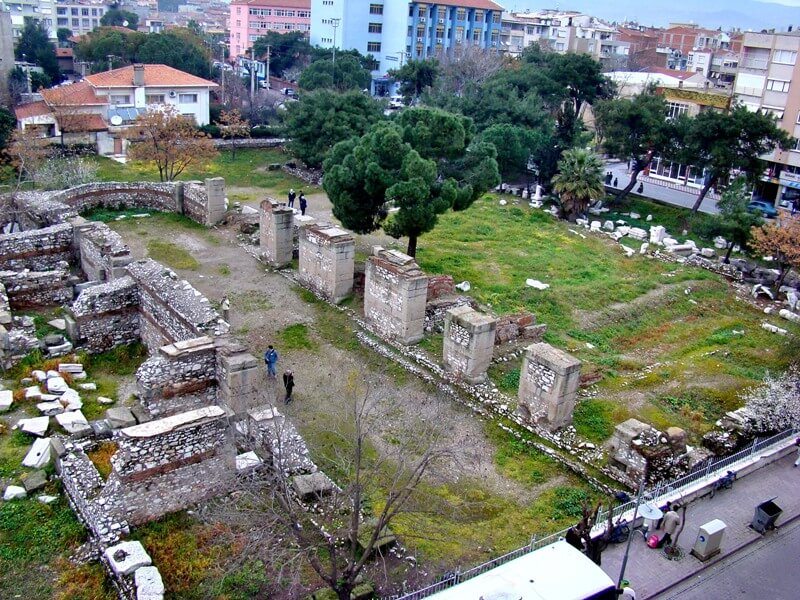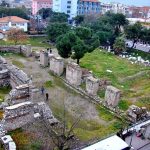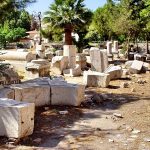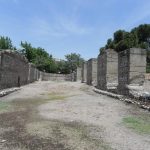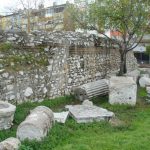HISTORY OF THYATIRA
Thyatira (Akhisar) was founded as a Lydian town (“Teira” is Lydian for “fortress” or “town”) near the shrine of the Lydian sun god Tyrimnus. Situated on a broad, fertile plain along the Lycus River (Gorduk cay), the city served as the central road junction in northern Lydia. It was midway on the Sardis-Pergamum highway which connected with a major road running southwest to Smyrna and north to Bithynia. Because of its strategic location, Seleucus I (d. 281 BC) settled Macedonian soldiers here to form a military colony. During the 3C BC the Galatians, Seleucids, and Attalids struggled for control of the city. During the Syrian war in 190 BC the Seleucids under Antiochus III held the city (Livy 37.8.7; 37.44.4). However, the treaty of Apamea awarded control to the Attalids. Because of its vulnerability, the city was invaded by Prusias of Bithynia (150 BC) and Aristonicus (133 BC). In the 1 C AD Thyatira was a major inland city in Asia, and its location made it an ideal commercial center. The local god was called Helius Pythius Tyrimnaeus Apollo, who represented a syncretistic conception of Lydian, Macedonian, and Greek deities. Outside the city was a shrine of the oriental Sibyl Sambathe in a sacred precinct of the Chaldeans. Lydia, the purple-dealer whom Paul met in Philippi (Acts 16:14), had probably become familiar with Judaism at a local synagogue. However, no remains of such a building have been found. A Jewish funerary inscription from the city calls the synagogue a sabbateion, that is, a Sabbath building. A locally-organized civic cult of Rome and Augustus was dedicated sometime before 2 BC. Thyatira was the fourth of the Seven Churches (Revelation 1-3). The letter to Thyatira is the central and longest of the seven letters. By AD 200, according to Epiphanius (Refutation of all Heresies 51.33), the city was completely Christian but aligned with the Montanist movement. In AD 214 the emperor Caracalla visited the city and designated it the center of a new judiciary district. Because of this privilege the city honored Caracalla as Founder and Benefactor.
Source : Mark Wilson / Biblical Turkey
